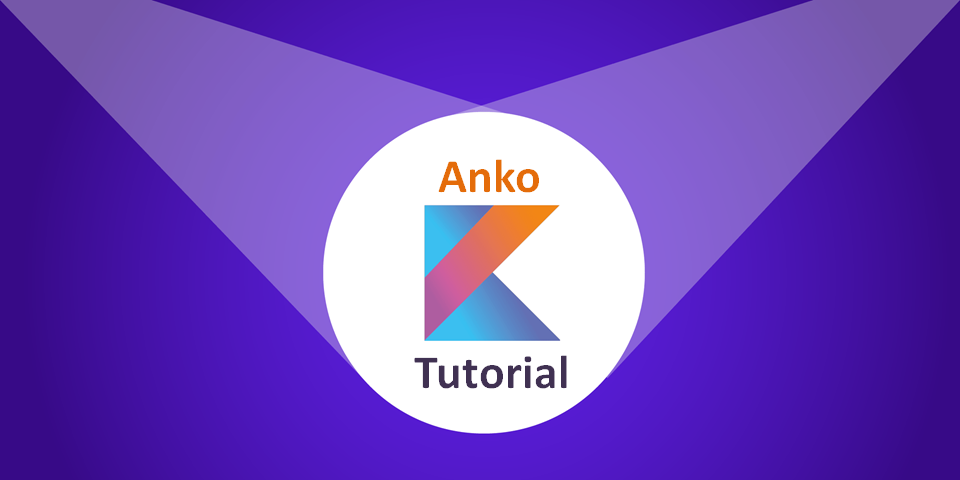Kotlin Anko is a library which makes Android application development faster and easier. It makes your code clean and easy to read, and lets you forget about rough edges of the Android SDK for Java.
Anko consists of several parts:
- Anko Commons: a lightweight library full of helpers for intents, dialogs, logging and so on;
- Anko Layouts: a fast and type-safe way to write dynamic Android layouts;
- Anko SQLite: a query DSL and parser collection for Android SQLite;
- Anko Coroutines: utilities based on the kotlinx.coroutines library.
Using Kotlin Anko
Gradle-based project
Anko has a meta-dependency which plugs in all available features (including Commons, Layouts, SQLite) into your project at once:
dependencies {
compile "org.jetbrains.anko:anko:$anko_version"
}
If you only need some of the features, you can reference any of Anko’s parts:
dependencies {
// Anko Commons
compile "org.jetbrains.anko:anko-commons:$anko_version"
// Anko Layouts
compile "org.jetbrains.anko:anko-sdk25:$anko_version" // sdk15, sdk19, sdk21, sdk23 are also available
compile "org.jetbrains.anko:anko-appcompat-v7:$anko_version"
// Coroutine listeners for Anko Layouts
compile "org.jetbrains.anko:anko-sdk25-coroutines:$anko_version"
compile "org.jetbrains.anko:anko-appcompat-v7-couroutines:$anko_version"
// Anko SQLite
compile "org.jetbrains.anko:anko-sqlite:$anko_version"
}
There are also a number of artifacts for the Android support libraries:
dependencies {
// Appcompat-v7 (only Anko Commons)
compile "org.jetbrains.anko:anko-appcompat-v7-commons:$anko_version"
// Appcompat-v7 (Anko Layouts)
compile "org.jetbrains.anko:anko-appcompat-v7:$anko_version"
compile "org.jetbrains.anko:anko-coroutines:$anko_version"
// CardView-v7
compile "org.jetbrains.anko:anko-cardview-v7:$anko_version"
// Design
compile "org.jetbrains.anko:anko-design:$anko_version"
compile "org.jetbrains.anko:anko-design-coroutines:$anko_version"
// GridLayout-v7
compile "org.jetbrains.anko:anko-gridlayout-v7:$anko_version"
// Percent
compile "org.jetbrains.anko:anko-percent:$anko_version"
// RecyclerView-v7
compile "org.jetbrains.anko:anko-recyclerview-v7:$anko_version"
compile "org.jetbrains.anko:anko-recyclerview-v7-coroutines:$anko_version"
// Support-v4 (only Anko Commons)
compile "org.jetbrains.anko:anko-support-v4-commons:$anko_version"
// Support-v4 (Anko Layouts)
compile "org.jetbrains.anko:anko-support-v4:$anko_version"
}
Download Anko Example Project:
Anko Commons
Anko Commons is a “toolbox” for Kotlin Android developer. The library contains a lot of helpers for Android SDK, including, but not limited to:
- Intents;
- Dialogs and toasts
- Logging
- Resources and dimensions
Anko Layouts
Anko Layouts is a DSL for writing dynamic Android layouts. Here is a simple UI written with Anko DSL:
verticalLayout {
val name = editText()
button("Say Hello") {
onClick { toast("Hello, ${name.text}!") }
}
}
The code above creates a button inside a LinearLayout and attaches an OnClickListener to that button. Moreover, onClickaccepts a suspend lambda, so you can write your asynchronous code right inside the listener!
Note that this is the complete layout code. No XML is required!
There is also a plugin for Android Studio that supports previewing Anko DSL layouts.
Anko SQLite
Have you ever been tired of parsing SQLite query results using Android cursors? Anko SQLite provides lots of helpers to simplify working with SQLite databases.
For example, here is how you can fetch the list of users with a particular name:
fun getUsers(db: ManagedSQLiteOpenHelper): List<User> = db.use {
db.select("Users")
.whereSimple("family_name = ?", "John")
.doExec()
.parseList(UserParser)
}
Anko Coroutines
Anko Coroutines is based on the kotlinx.coroutines library and provides:
bg()function that executes your code in a common pool.asReference()function which creates a weak reference wrapper. By default, a coroutine holds references to captured objects until it is finished or canceled. If your asynchronous framework does not support cancellation, the values you use inside the asynchonous block can be leaked.asReference()protects you from this.
Hope you like this article.


Share your thoughts